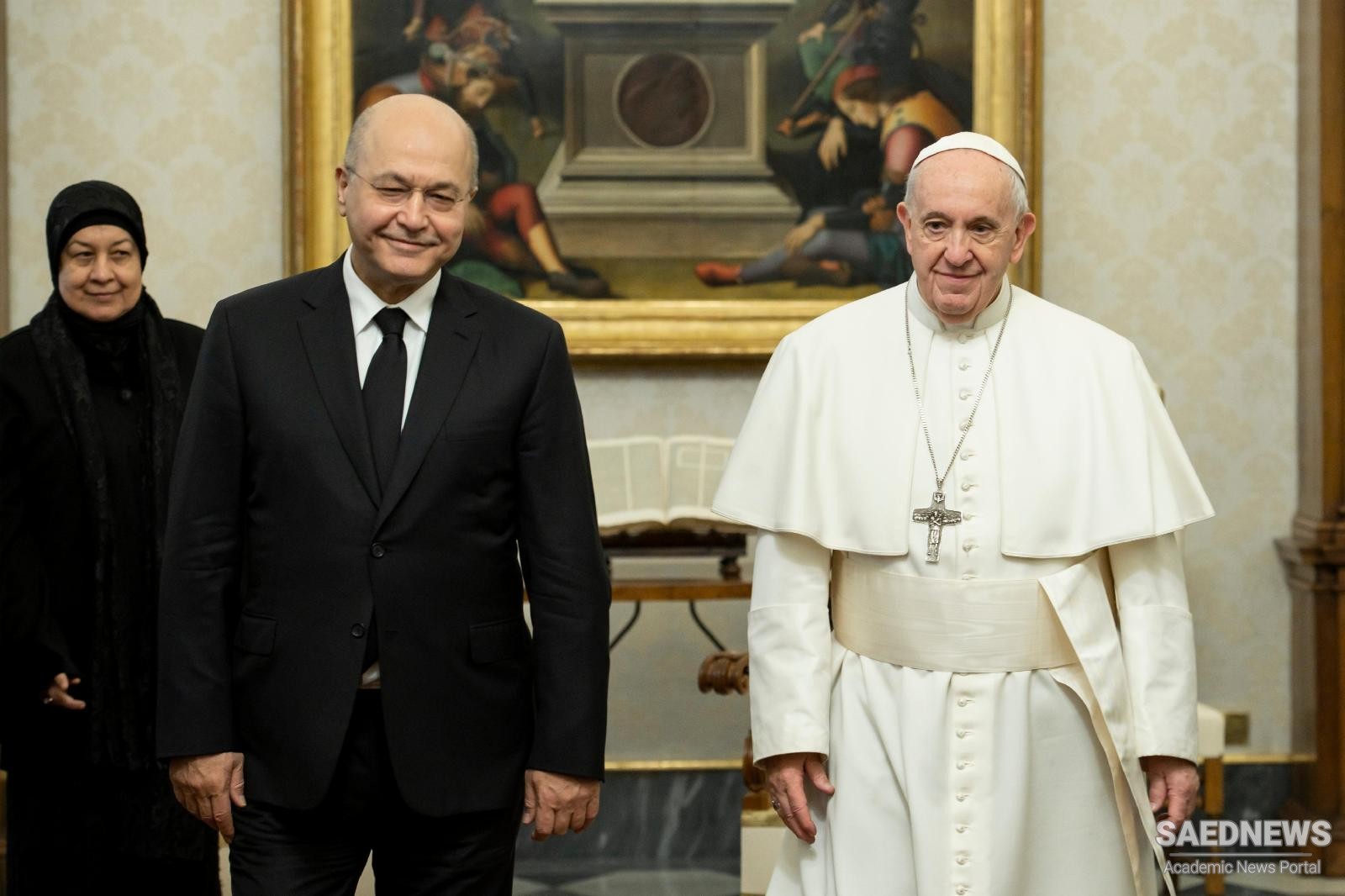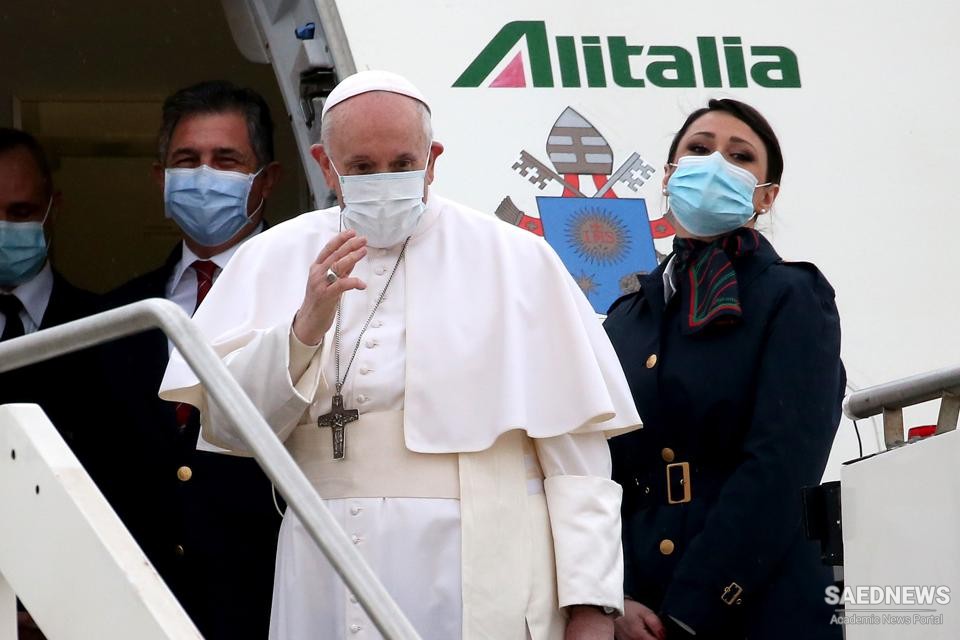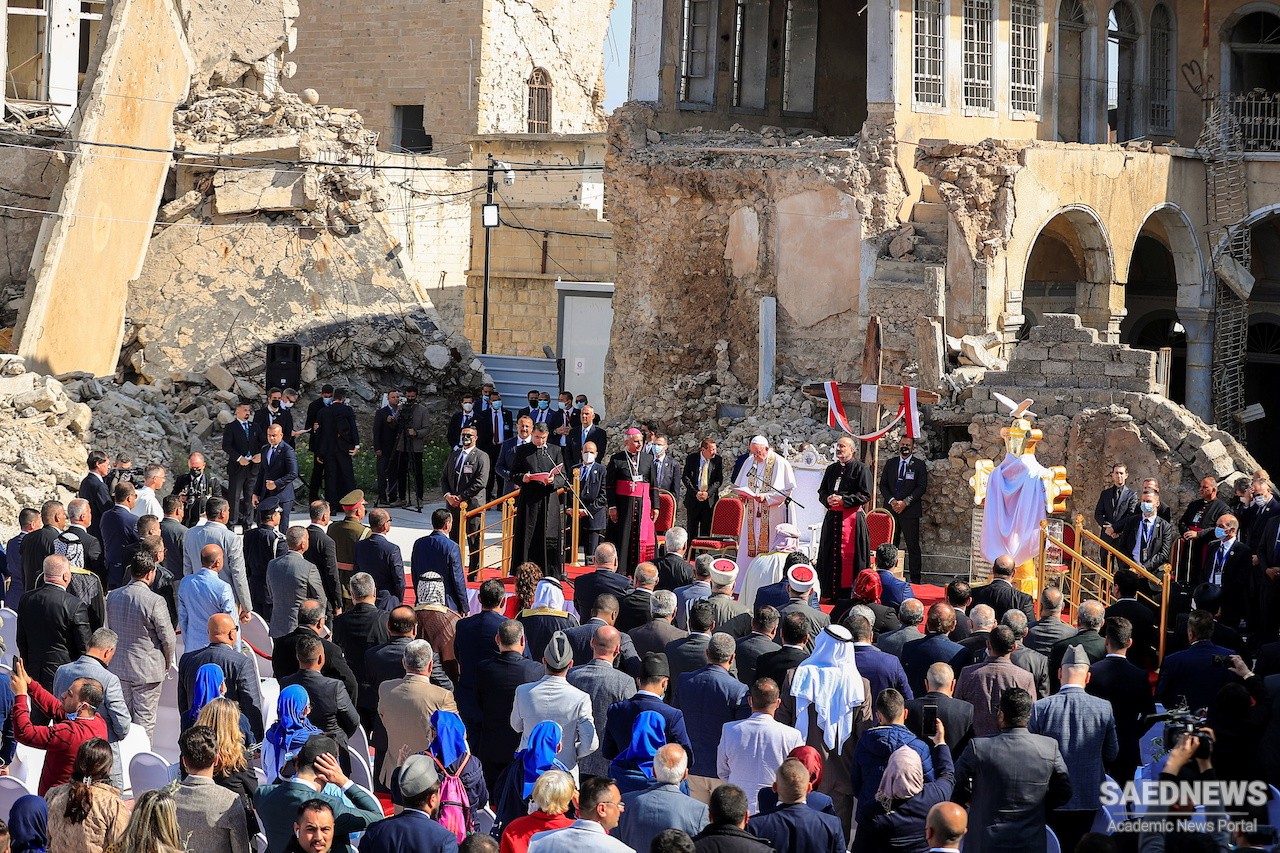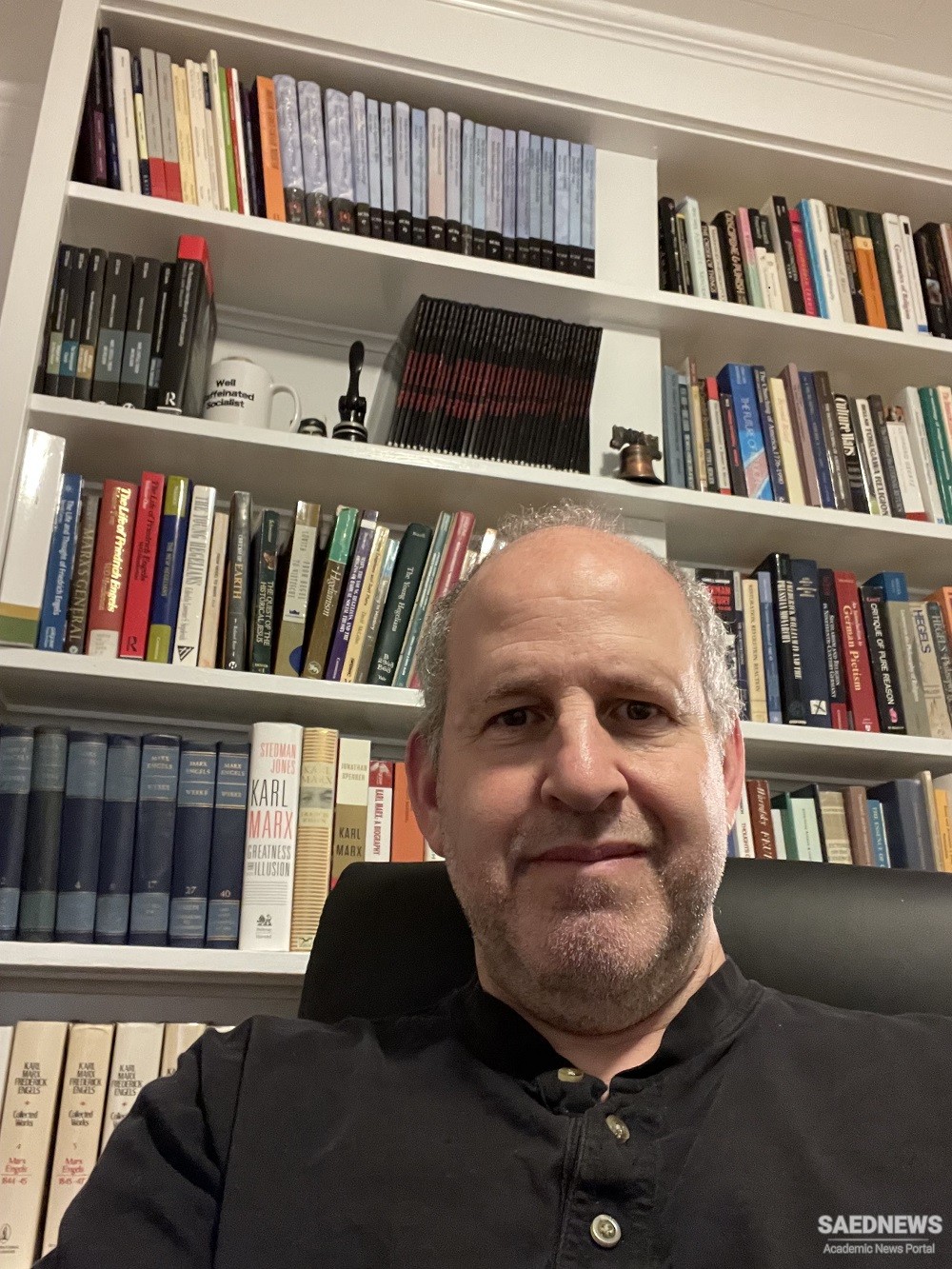Iraqi people suffered a lot under the toppled despot Saddam Hussein for many years. Saddam was an ambitious dictator who sought to build an Arab Empire under his own leadership. He had plans for annexation of parts of Arab World to Iraq but he failed. Later he turned against Iran and after the 1979 Revolution, he thought that it is time to invade to Iran and expand the Iraqi territory. But this plan didn't work too. He fought a useless and disgraceful war for eight years sponsored by western countries as well as the Arabs. However, he failed and just left suffering for his nation. After 9/11, United States decided to invade Iraq instead of targeting Saudi Arabia the mastermind and main sponsor of Islamic fundamentalism in the world. The 2003 invasion of Iraq destoryed the country. It brought chaos, poverty and crisis. The country was already divided due to Saddam's sectarian policies. The US government supported certain sects in order to secure its interests in Iraq the best. Thus, another segregation system prevailed in the country and the gap yawned furhter. The lack of a unique and powerful government in Iraq led to ethnic violence and covered civil war. Finally, the most devilish terrorist group of the century ISIS emerged and spread horror and terror throughout the country. Chopping off heads, burning people alive, raping thousands of innocent and defenseless girls and women, killing children, destroying historical sites, sacrilegious actions, taking women as slaves and group raping all were done under the name of Islam. The ISIS ruled for many years parts of Iraq and Syria. The resistance groups uprooted ISIS and another race for power started. Now Iraq is one of the most dangerous countries in the world. United States has numerous military bases in this country and many American soldiers are still in this country. There are conflicts of interests and this incites fatal standoff. No one cares about the people whose only aspiration is peace. Children need to be educated and mothers and fathers need peaceful life. Refugees want to return their homes. There are countless other problems that wait to be dealt with. On the other hand, Iraq is home to numerous faiths. Christians, Jews, Muslims, Yazidis, Zaroastrians and many mystical sects and groups. Christian minority was among the people who suffered a lot both during Saddam regime, war time and ISIS crisis. The community is dwindling and many decided to leave the country. This week Pope Francis visited Iraq in support of the suffered Christian community. This historic visit has been received in different ways. Pope's meeting with the Grand Ayatollah Sistani was one of the most strategic decisions of the Vatican. Pope Francis even visited Kurdi Family in order to send a message to the world of the emergency of the refugee problem. To discuss the implications of the Papal visit of Iraq, SAEDNEWS has conducted an exclusive interview with Professor Warren S. Goldstein. Professor Warren S. Goldstein is Executive Director of the Center for Critical Research on Religion (http://www.criticaltheoryofreligion.org) and his Ph.D. is from the New School for Social Research. He is Co-Editor of Critical Research on Religion and Book Series Editor of “Studies in Critical Research on Religion.” While his research aims to develop a critical sociology of religion as a “new paradigm” in the sociology of religion, he is more broadly interested in the development of a critical paradigm in the study of religion as a whole. He is also co-chair of the Sociology of Religion (SOR) group in the American Academy of Religion. Professor Goldstein was also a Visiting Fellow of the Committee on the Study of Religion at Harvard University and a Religion Fellow at Boston University’s School of Theology.

SAEDNEWS: As you know, Iraq is a war-ravaged country in Middle East and for many years dictatorship and terrorism have left deep scars on the body of the Iraqi nation. Lately, British variant of the COVID-19 have claimed numerous lives in Iraq. There is also an uncontrollable conflict escalation. Given these, why did Pope Francis decide to pay the historic visit to Iraq in this very moment of insecurity and health crisis?
Professor Warren S. Goldstein: Pope Francis’s primary concern was the plight of the Christian community, particularly in Northern Iraq. Since the American invasion of Iraq and the rise of the Islamic State, which was an unintended consequence of it, the Christian population is about one-third of what it was. Due to war and religiously motivated violence, many Iraqi Christians have fled the country. Pope Francis does not want to the Iraqi Christians go the way of Iraqi Jews, very few of whom remain. The highpoint of his visit was his visit with his Shia counterpart, Grand Ayatollah Al-Sistani, through whom he hopes to forge better relations between Iraqi Muslims and Christians. Indeed, the Pope, who drew large crowds during a pandemic, did increase the potential for the spread of the Corona virus, in particular since very few Iraqis have been inoculated. And although there has been an uptick in recent violence, the question remains whether the visit, while certainly well intentioned, could not have waited a little while. Certainly, the Pope who is eighty-four years old and due to the virus has been stuck inside for the last year, as well as Grand Ayatollah Al-Sistani, who is ninety, are not getting any younger. So, he felt that this was the historic moment.

SAEDNEWS: The Vatican has announced that the Pope is to deliver the message of peace to the Iraqi nation. The Pope has voiced his concerns of the situation of dwindling Christian community in Iraq. The critics say that this visit could have happened during the reign of ISIS in Iraq or in the form of condemnation of the governments that established, supported and sponsored ISIS in Iraq and Syria if Pope was really worried about peace and the Christian community. Does Pope have any answer for these critics?
Professor Warren S. Goldstein: The Pope visited places in northern Iraq like Mosul, which used to have a large Christian population, but fell under ISIS control. So, it would not have been possible for him to visit during that time. He delivered his message of peace against the backdrop of the ruins to a recently war-torn country. ISIS arose in a power vacuum; it was an unintended consequence of the botched US invasion of Iraq and the toppling of the Hussein regime. It has neither the support of the US, Russia, or Iran. Whatever support it did receive from other governments was covert, not overt, which makes it difficult to point fingers. I think his visit was well-intentioned.
SAEDNEWS: Pope Francis had a historic meeting with Shia leader and high cleric Grand Ayatollah Sistani at Najaf. There are different narratives of this meeting and even certain pessimistic analysts believe that this meeting was a marginal plan for furthering the strategic influence of the Vatican in Iraq—for rebuilding a stronger and even larger Christian community there. Should we understand this meeting as an example of interreligious dialogue for peace or a strategic plan for actualization of ideological expansionism?
Professor Warren S. Goldstein: Iraqi Christians now number about half a million out of a country of close to forty million people. So, in no way, should they be perceived as a threat. They are a religious minority and as such are in a similar predicament as many religious minorities throughout the world—and that is, of persecution. Indeed, Christianity and Islam are both world religions and as such are expansionist. Historically, this has caused them to come into conflict with each other. What the Pope emphasized during his visit is that they are both Abrahamic religions, thus his visit during this trip to the archeological ruins of Ur, the birthplace of Abraham. Ur means origins. Islam, Christianity, and Judaism have a common genealogy. With this said, religion can be used for ideological expansionism but I do not think this was his goal. Rather, it was to protect an endangered religious minority.

SAEDNEWS: The Iraqi nation in general and Iraqi youth in particular have suffered in the name of religion. ISIS presents itself as a fundamentalist perspective of Islam and committed appalling crimes as an act of faith. Now other religious elements are offering remedies again with a religious origin. As a critical sociologist of religion, how can you explain this paradoxical situation from a critical point of view?
Professor Warren S. Goldstein: There is no agreement among critical scholars of religion of what religion is. Some argue that it is a Western category, which has been imposed on the rest of the world. These same scholars argues that the term has been applied way too broadly to the point where many social behaviors can be interpreted as religious (for example, secular religions). Religion can be an empty vessel used not only to foster peace but also to justify war. It can promote the values of freedom and equality, but also used to legitimize slavery and inequality. Religion often serves to reinforce collective identity but these identities are curtailed to specific groups like ethnicities and thus end of exacerbating tensions with other groups. Finally, religion is based ultimately on belief or faith often in what is metaphysical and thus not empirically verifiable. These beliefs can galvanize populations and inspire action and herein lies the danger. To what ends: positive or negative? As a critical sociologist of religion, I have argued that the critique of religion, needs to be value driven. It needs to be based on some of the same values that we inherit from religion: freedom, equality, justice, democracy, and peace. It is though these values that we can evaluate both the positive and negatives consequences of religion and it is through these values that religion can provide its own critique of itself as well as of the larger society.

SAEDNEWS: Suffering in many cases in history has turned into an excuse for the creation of a new form of suffering. Many existing crises in the Middle East that are the source of terrible suffering have their origins in the sufferings that have occurred earlier in the history. The Pope has emphasized a lot of the unbearable sufferings of Iraqi Christian community in recent years. Some analysts believe that this is indeed a silent anagonization of Islam. Critically speaking, how can humanity stop this vicious circle of suffering?
Professor Warren S. Goldstein: Popes come and go. There have been good popes as well as bad. I count Francis among the better popes, not seen since Vatican II. The Roman Catholic Church has its own demons including the Crusades, the Inquisition, and its acquiescence to fascism. So, what has been done in the name of Christianity does not have any moral high-ground than what has been done in the name of Islam, or any other religion. There are multiple causes of human suffering: some natural yet others manmade. Religion can be a propellant of suffering, but it is wrong to think of it as monocausal. Religion often acts as a superstructure is which connected to its material base (whether in economics, politics, or society). Thus, the human suffering afflicted by religion can also have other motivating factors: money, power, hatred, etc. The easiest cause of suffering to solve is an economic one. The advance of technology and science can help alleviate human suffering. The most difficult problems to solve are often the political ones. For example, in our current example of Iraq, the US toppling the Hussein regime was the easy part. The difficult part, which resulted in the civil war, was replacing it. Divisions between Shia and Sunnis exacerbated this crisis. But religion also has a roll to play. What Francis and Sistani showed us is that religions have much in common. They provide a moral foundation to society—one based on values. The English Civil War (1640-1660), a war between the Anglicans, Presbyterians, and Independent (Puritans), that is a war between Protestants, motivated John Locke to write his essay on tolerance. Religious groups, which are often the expression of ethnicities, need to learn how to get along with each other. This is best achieved in a religiously pluralistic society where no religion has a monopoly.

SAEDNEWS: Many criticize religious as an evil that has destroyed many lands so far including Iraq. There is a group of people who retort that it is indeed institutional religion that is the source of evil not the religious creed as such. But religion is itself a social institution and it cannot survive without this institutional aspect. Should we hollow religion of its social content in order to make it good or does this mean the annihilation of religion?
Professor Warren S. Goldstein: Religion can take many forms, one of which is institutional religion. Lived religion, for example, takes place outside of the institutions, in people’s experiences and prayers, it is not independent of them. Religion is not the only entity that takes institutional form; there are others: governmental, educational, corporations, etc. Religion in its institutional form is economic, organizational, political, social. So, it is not the institution itself; it is what the institution does. The institution as an organizational vehicle has the capacity for good but it also has the capabilities of doing a large amount of damage. The litmus test should be the values that guide it. Institutions tend to be hierarchical but many religious traditions have participated in alternate forms including democratic and communal ones. It is these forms that help us envision more liberating, equitable, and just societies. There should not be a conflict between the institutional aspects of religion and its social content although naturally they do come into conflict with each other. In developed societies, esp. on a mass scale, a lion share of religion, will take place in institutional form, by necessity. But the problem is one of institutionalization. Sociologist Max Weber call the Catholic Church the oldest bureaucracy. And certainly, the Pope is dressed like a king, attracts crowds (and tabloid attention) much like the Royal Family. And although, the Pope was well intentioned, Al-Sistani was more of a humble counterpart.


 SAEDNEWS Exclusive Interview with Professor Dustin J. Byrd on Sociological Analysis of Islamic Revolution
SAEDNEWS Exclusive Interview with Professor Dustin J. Byrd on Sociological Analysis of Islamic Revolution














































